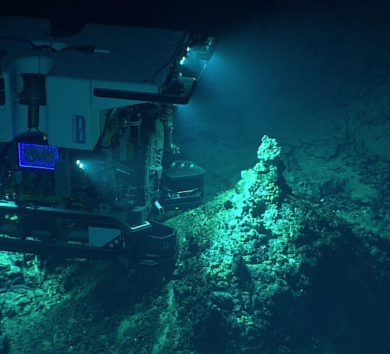

On July 16, 2021, the Executive Board of the International Monetary Fund (IMF) discussed a paper proposing a strategy to help members address climate change-related policy challenges.
The paper highlights macro-critical climate-related policy challenges that will confront all IMF members in the coming years and decades.
For example, global warming is bound to undermine productivity and growth, affecting fiscal positions and debt trajectories. It will also impact asset valuations, with repercussions for financial stability. Further, climate change will redistribute income across the globe, which will influence trade patterns and exchange rate valuations. To live up to its mandate, the paper argues, the IMF needs to assist its members with addressing these challenges. Moreover, as a multilateral institution, the IMF can play a helpful role in facilitating policy coordination between countries to mitigate climate change.
The paper takes stock of climate-related activities in the IMF to date.
It finds that the Fund has stepped up engagement on climate significantly in recent years—reflecting in part demands by the membership—with a focus on policy papers and flagship reports, accompanied by some discussion of climate change-related policy challenges in bilateral country reports.
The paper argues that the time has come for a systematic and strategic integration of macro-critical aspects of climate change into the IMF’s core activities. It proposes covering climate change-related policy challenges comprehensively in Article IV consultations, aiming at discussing such challenges with all members every 5-6 years, and more frequently with the largest emitters of greenhouse gases and countries particularly vulnerable to climate change.
It also suggests expanding coverage of climate risk to all financial stability assessments (FSAPs), and a substantial scaling up of climate-related capacity development (CD) activity in line with member demand. In strengthening its engagement on climate, the IMF will continue to cooperate and partner closely with other institutions to leverage complementarities and provide the best service to its members. The paper also estimates the cost of implementing the strategy.
Executive Directors welcomed the opportunity to discuss a strategy to help Fund members address climate change related policy challenges.
They concurred that climate change is a global existential threat that poses critical macroeconomic and financial policy challenges for the whole Fund membership in the coming years and decades.
Against this backdrop, Directors broadly agreed that the Fund has an important role to play, within its mandate, in supporting members’ efforts to address climate change related challenges through its surveillance, when macro-critical, and through its capacity development (CD) activities.
A consensus was arrived at supporting a more comprehensive coverage of climate change related policy challenges in Article IV consultations, where macro-critical. In line with the conclusions from the Comprehensive Surveillance Review, they generally agreed that coverage of climate change mitigation in Article IV consultations would be strongly encouraged for the largest emitters of greenhouse gases.
Some Directors stressed that this means that coverage of these policies would be voluntary. Directors supported the proposal to regularly cover adaptation and resilience building policies for the most vulnerable countries to climate change, including options to attract climate financing.
In addition, they generally saw a need to cover the management of transition risks, including for fossil fuel exporters, of adjusting to a low carbon economy, while taking into consideration each country’s own circumstances.
It was agreed that Financial Sector Assessment Programs should have a climate component where climate change may pose financial stability risks. This would help assess any potential pressure points for the financial system from physical climate shocks and from the transition to a low-carbon economy. A few Directors emphasized that this climate component should be aligned with the standards being developed by relevant international standard-setting bodies to ensure a consistent policy advice.
Directors supported expanding climate-related CD efforts, given rising demand by the membership. They also generally supported complementing Fund CD resources with donor funded activities.
A number of Directors also noted that the Fund could consider using program conditionality to support borrowing countries to increase their resilience to climate change shocks and ensure macroeconomic sustainability, provided the conditionality is in line with the Fund’s lending mandate and policies. A few Directors cautioned, however, against using climate-related conditionality.
Directors agreed that policy papers and multilateral surveillance reports should remain critical outlets for disseminating the Fund’s analytical and policy work on climate change, especially for topics with a multilateral component that require policy coordination, such as mitigation policies or climate financing.
Directors underscored that reliable climate data are a critical foundation for macro-climate analysis and encouraged further work in this area. They generally stressed the importance of developing models and standardized toolkits to support the Fund’s work in both multilateral and bilateral surveillance, while being mindful of potential limitations in models and toolkits, including due to specific country circumstances.
The importance of partnering with other institutions, including the World Bank Group, on climate-related work was stressed by the Directors. They called for a more systematic approach to collaboration to leverage the expertise of other institutions, while minimizing overlap and maximizing value for the membership.
They further took note of the proposal for gradually adding 95 Full-Time Equivalents to implementing the proposed climate strategy. They looked forward to assessing this, together with other funding requests, during the discussion of the Fund’s overall budget.
Directors generally agreed that some internal re-organization that facilitates an efficient delivery of the climate strategy would be needed, in particular by establishing climate hubs in functional departments and reinforcing area departments as necessary. A few Directors stressed that greening the Fund’s own operations and reducing its carbon footprint will be key for the institution’s credibility.







Comments